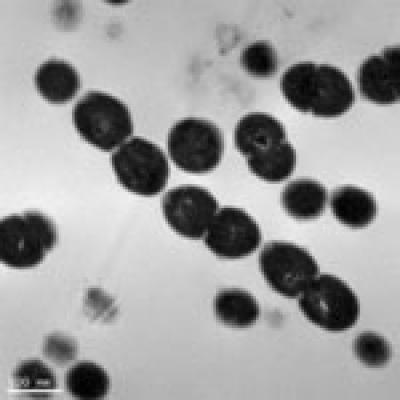In findings the authors called "unexpected and striking," researchers found that a new regulating messenger IP4, a small soluble molecule, augments the binding of three different PH domain proteins to one of the most commonly recognized membrane lipids, PIP3. The study also showed that inhibiting production of IP4 can result in reduced protein binding to membranes and reduced activation of key signaling molecules in developing T cells, leading to a block of T cell maturation and to severe immunodeficiency in animal models.
Body
Researchers at the University of Pennsylvania School of Medicine & School of Engineering and Applied Science have discovered a better way to deliver drugs to tumors. By using a cylindrical-shaped carrier they were able sustain delivery of the anticancer drug paclitaxel to an animal model of lung cancer ten times longer than that delivered on spherical-shaped carriers.
A new study in Journal of Personality shows that selfless and social behavior is not purely a product of environment, specifically religious environment. After studying the behavior of adult twins, researchers found that, while altruistic behavior and religiousness tended to appear together, the correlation was due to both environmental and genetic factors.
For several types of cancer, persistently high levels of the soluble factor TGF-beta in the blood after surgery, chemotherapy, or radiation therapy correlate with increased risk of early metastasis and a poor prognosis. Using a mouse model of breast cancer, researchers from Vanderbilt University have now generated evidence to suggest that treatment with TGF-beta inhibitors might help such patients.
In advanced cancer, anti-tumor therapies often work only partially or not at all, and tumors progress following treatment.
Vanderbilt-Ingram Cancer Center scientists have now linked a treatment-induced growth factor to the cancer’s future spread.
The team led by Carlos Arteaga, M.D., reports in the May issue of the Journal of Clinical Investigation that radiation and chemotherapy increase circulating levels of the growth factor TGF-beta, circulating cancer cells, and tumor metastases in a mouse model of metastatic breast cancer.
Researchers at Johns Hopkins have discovered how cells fine-tune their oxygen use to make do with whatever amount is available at the moment.
Virginia Commonwealth University researchers have decoded the genome of a bacteria normally present in the healthy human mouth that can cause a deadly heart infection if it enters the bloodstream.
The finding enables scientists to better understand the organism, Streptococcus sanguinis, and develop new strategies for treatment and infection prevention. Transmission electron micrograph of S. sanguinis. Credit: Image courtesy of Lauren Turner/VCU.
Transmission electron micrograph of S. sanguinis. Credit: Image courtesy of Lauren Turner/VCU.
Seasonal nomadism, migration, and resettlement have always been important for the people living in the northern Polar Regions as these movements are key for their survival. In the past, such movements were usually triggered by the local conditions which their continued existence is affected by activities such as aggregation in temporary winter villages near the sea ice for seal hunting and summer dispersal inland looking for wild reindeer.
There are two types of screening programs – proactive and opportunistic. Proactive screening uses population registers to invite people to be screened at regular intervals, while opportunistic screening targets people attending health services for unrelated reasons.
The value of opportunistic chlamydia screening is being called into question.
Dr Nicola Low, an epidemiologist at the University of Berne in Switzerland argues that claims about screening are not supported by rigorous research or practice.
Livermore researchers have moved one step closer to being able to turn on and off the decay of a nuclear isomer.
Starting to breed late in life is a bad idea if you want to maximise the number of offspring that you produce - or so the theory goes.
But doubt has now been cast on this hypothesis - one of the biggest assumptions in behavioural ecology - by researchers from the universities of Bristol and Cape Town and published today in Current Biology.
Teens who are most physically active and consume the most calories are the leanest, researchers say.
Mating strategies are straightforward in bottlenose dolphins, or are they? Much of the work carried on male-female relationships in that species to date show that males tend to coerce females who are left with little choice about with whom to mate. This explains the complex relationships we observe in male bottlenose dolphins, which are only paralleled by human social strategies: the formation of alliances and alliances of alliances, also called coalitions.
In the hands of the wrong person, power can be dangerous. That's especially the case in the workplace, where the abuse of power can lead to sexual harassment.
We are used to hearing about the effects of climate change in terms of unusual animal behaviour, such as altering patterns of fish and bird migration. However, scientists at the University of Birmingham are trying out an alternative bio-indicator – the king penguin – to investigate whether they can be used to monitor the effects of climate change.